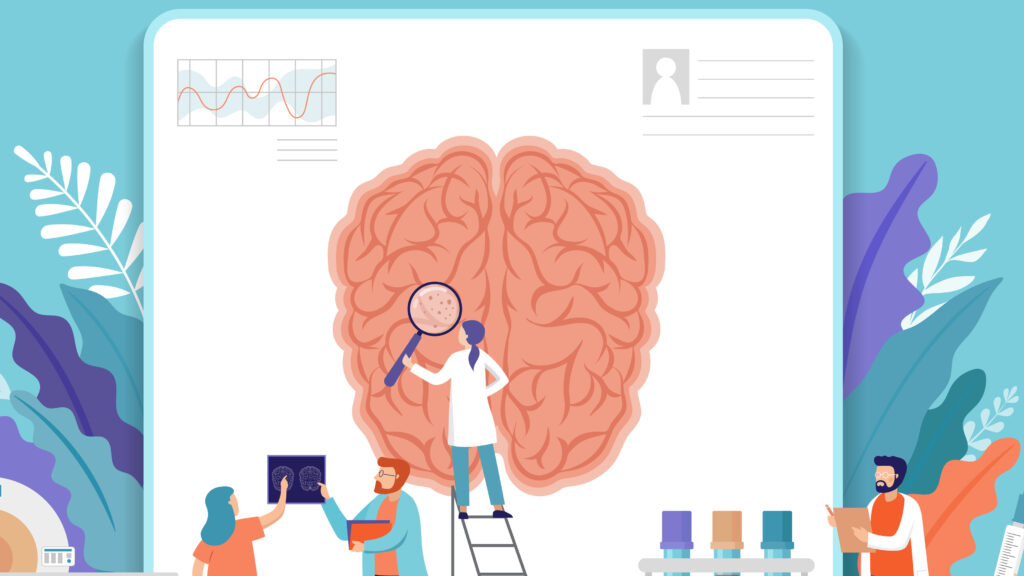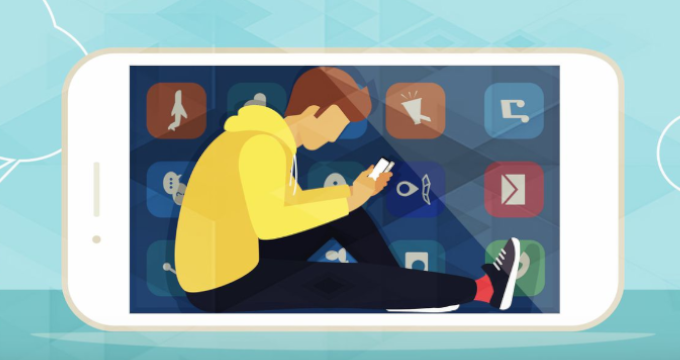The market for mental health apps is expanding: by 2027, it is projected to reach $3,918 million, growing at a CAGR of 27,3%. Driven by the increasing awareness about mental health issues, and the growing number of people suffering from mental, emotional, and neurological conditions, it is attracting investors willing to create digital solutions and platforms for mental health.
In this article, we will talk about the important aspects of mental health application development. If you plan on building your own mental health app, read on.
Building Mental Health Software: Core Aspects to Consider
Like every industry, mental healthcare has its distinct specifics. Taking them into account will help you build a solution capable of successfully addressing customer problems and delivering value. Below are the key aspects that you should take into account when plunging into developing digital solutions for mental health.
Types of apps for mental healthcare
Mental healthcare is no longer a narrow niche – today, it’s a vertical market that is vast and diverse. The existing types of apps for mental healthcare reflect its diversity.
– Apps for managing mental disorders: These are solutions targeting users diagnosed with mental health conditions like schizophrenia, major depression, psychosis, or bipolar disorder. This segment also includes subcategories such as apps for overcoming addiction, relieving stress, and anxiety. As such, these apps aim to help users take control of their disease, track medication intake, and contact mental health professionals when necessary. They may also offer communities and support groups of people dealing with the same issues.
– Apps for self-improvement: These apps target a wider user group, and usually include mood tracking features helping users monitor their emotional state, take control over it through managing negative self-talk, and change negative behavior patterns. Just like apps for handling mental disorders, they often provide access to a community of users for sharing experiences and may feature forums or discussion groups.
– Wellness and meditation apps: It is a vast category of apps providing users with meditation and relaxation tips to help them handle anxiety and stress. Such apps often include mood tracking, questionnaires, tests for self-discovery, and more.
Clinical base
The key rule of thumb for building a successful mental health app is a solid clinical base. The questions and tips provided by such apps should be based on proven evidence-based therapeutic approaches and practices such as Cognitive Behavioral Therapy (CBT) to ensure effectiveness and trustworthiness. Such apps often have telehealth features enabling users to contact certified counselors and mental health professionals.
Regulatory requirements
Because mental health apps deal with users’ personal and highly sensitive data, they must comply with the HIPAA law in the USA, and the GDPR regulation in Europe. If such apps are acting as marketplaces connecting patients and therapists, all mental health professionals should submit documents that confirm their education, certification, and the right to practice in a certain area.
Security
Security and data protection are paramount when it comes to applications for mental healthcare. Make sure you implement advanced verifications, authentication, and healthcare data protection practices to safeguard users’ medical records and personal information.
Usability and design
For mental health apps, user experience has immense importance. Apart from being attractive, the app design has to be pleasant and non-intrusive. As far as the application interface is concerned, making it easy to navigate could be a life-saver for individuals in need of urgent help.

Community moderation
Users of mental health apps may be extremely sensitive to the tone of communications and interactions. If your app features include communities and user groups, make sure that they are well-moderated.
In-app human support
The core requirement for general mental apps, and, especially, apps targeting patients with psychiatric conditions, is integrated doctors’ support and capability to urgently contact a human support officer. Even if your app is a chatbot based on algorithmic answers and questions, in-app human support should be an option.
Integration with third-party services
Think about which value-adding services you could offer through your app. For example, your solution could integrate with pharmaceutical order and delivery companies, enabling users to buy prescribed meds directly from an application environment.
Final Thoughts
As you can see, building apps for the mental healthcare industry involves many nuances. Even a seemingly non-essential element, such as the color of interface or tone of voice of a support officer, could turn out extremely important for certain user groups. Mental healthcare is a regulated industry, so it is also essential to ensure that your solution complies with all the legal local requirements. The clinical and scientific base will ensure your app’s efficiency and credibility, so it’s best to build your solution in partnership with certified mental health professionals.
Another partnership that is extremely important, is a partnership with a software development company. Reliability, experience, expertise in building solutions for healthcare as well as willingness to offer application support and upgrades should be the main criteria for your choice of a long-term tech partner.
Thinking about building mental health apps and solutions? Talk to us now about your app idea!

